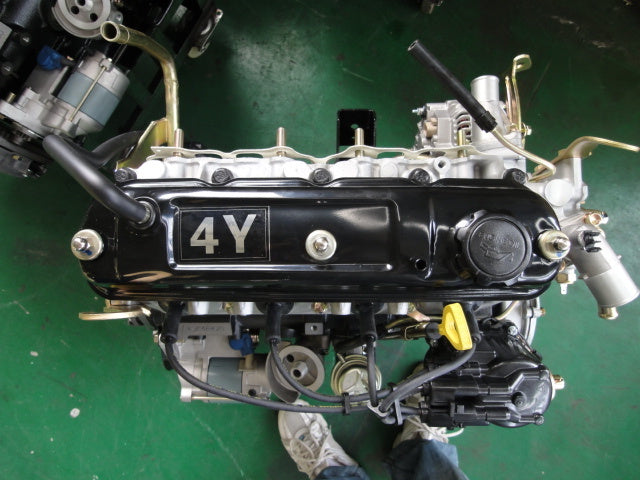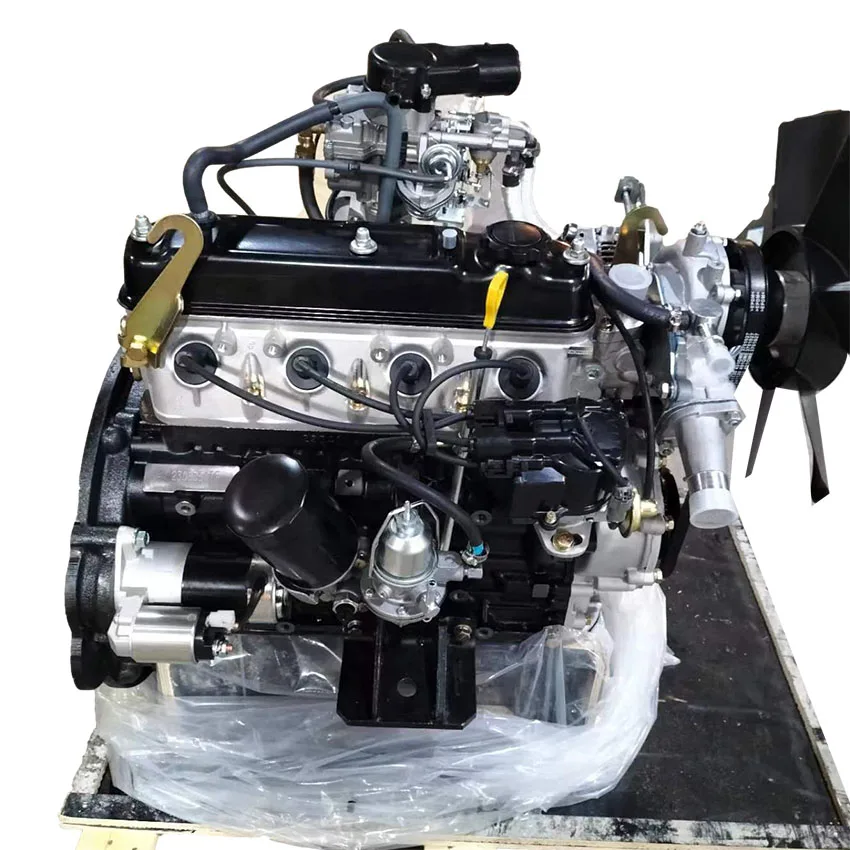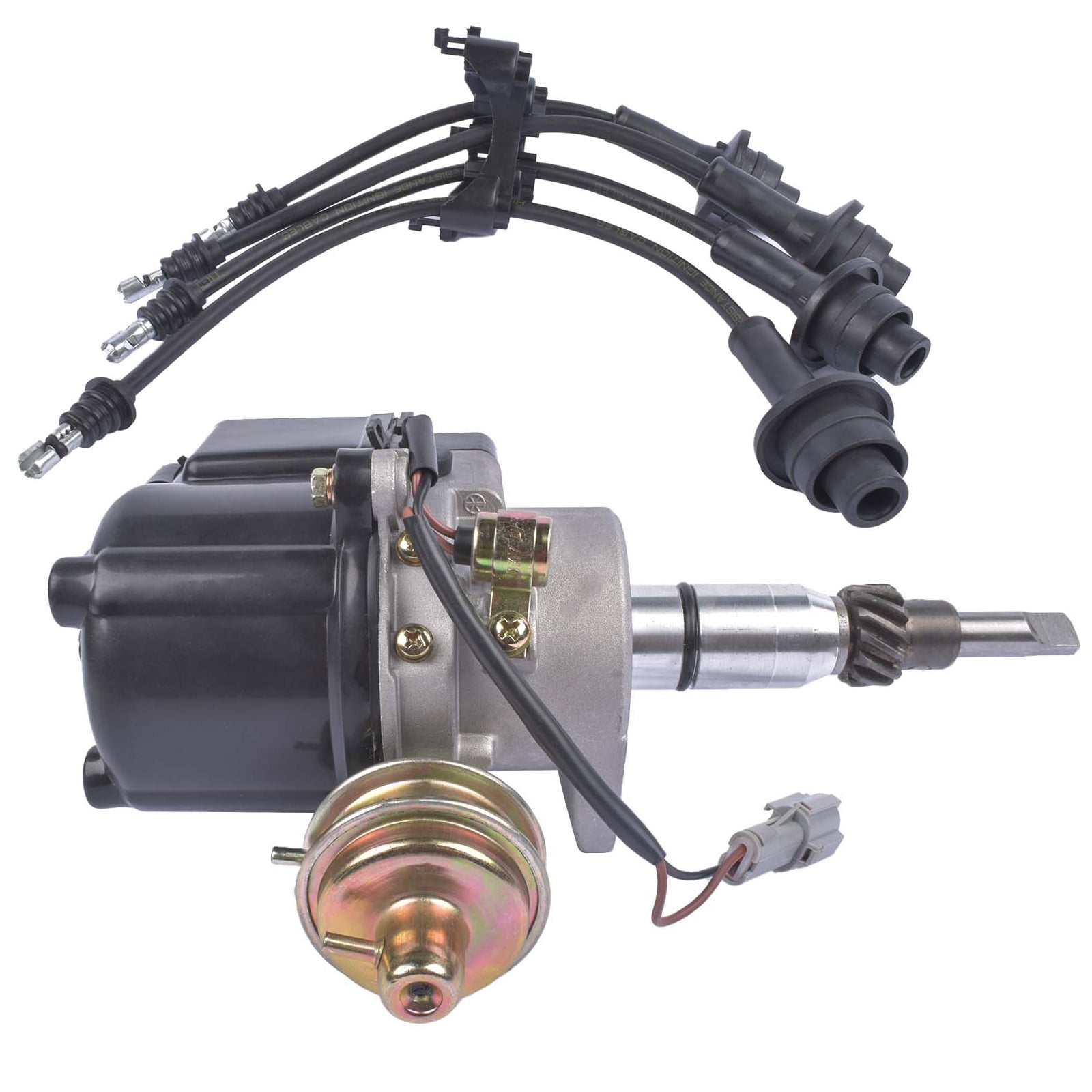Key Features That Make the 4Y Engine a Reliable Option for Drivers
Key Features That Make the 4Y Engine a Reliable Option for Drivers
Blog Article
Discovering the Different Kinds of Engine: Which One Fits Your Needs?
Internal burning engines continue to control due to their reliability, while electric engines are getting traction for their sustainability. Crossbreed engines use a functional concession, and diesel engines stand out for their power in requiring applications.

Internal Combustion Engines
Interior burning engines (ICEs) are the foundation of modern transport, powering a substantial array of cars from automobiles to aircrafts. These engines operate on the concept of transforming gas into mechanical power via a collection of regulated surges within a burning chamber. One of the most typical kinds of ICEs consist of gasoline engines, diesel engines, and rotating engines, each created to fulfill specific efficiency and effectiveness requirements.
Gasoline engines generally make use of spark ignition, while diesel engines rely upon compression ignition, causing distinctive differences in gas efficiency and power result (4y engine). Rotary engines, or Wankel engines, use a small layout and smooth procedure, yet are much less generally utilized in mainstream applications
ICEs have actually gone through considerable innovations in technology, including the intro of turbocharging and gas injection systems, which improve overall performance and efficiency. In spite of their efficiency improvements, ICEs encounter boosting examination due to their environmental effect, particularly regarding greenhouse gas discharges.
Electric Engines
As issues regarding ecological sustainability and nonrenewable fuel source dependency expand, electrical engines have actually become an engaging choice to internal combustion engines. These engines use electric motors powered by batteries or gas cells, giving a cleaner and extra reliable means of propulsion.
Among the primary advantages of electrical engines is their lowered discharges. Unlike traditional engines that shed fossil fuels, electric engines produce absolutely no tailpipe discharges, substantially decreasing air contamination and contributing to enhanced public health and wellness. Additionally, the performance of electrical motors often surpasses that of internal combustion engines, transforming a better proportion of energy from the power source right into functional power for activity.
Electric engines are additionally significant for their quiet procedure, making them perfect for metropolitan settings. 4y engine. The simpleness of their design causes less relocating components, which can bring about minimized maintenance costs and boosted integrity with time
Nevertheless, challenges remain, consisting of battery manufacturing influences, charging infrastructure, and range restrictions. Regardless of these obstacles, the expanding financial investment in electrical car modern technology and eco-friendly energy resources factors toward an encouraging future for electrical engines, placed to play an essential function in the shift toward lasting transport.
Crossbreed Engines
Mixing the benefits of both standard and electrical interior combustion engines, hybrid engines represent a functional remedy in the pursuit for efficient and sustainable transport. These engines integrate a fuel or diesel engine with an electrical motor, enabling boosted gas efficiency and minimized emissions compared to standard cars.
Hybrid engines operate in several settings, using the electrical motor for low-speed driving and the interior burning engine for greater rates or when even more power is required. This dynamic procedure not only improves gas economy yet additionally contributes to a smoother driving experience. Regenerative braking is an additional vital attribute, catching power generally shed during braking and redirecting it to charge the battery.

As consumers progressively prioritize eco-friendliness, hybrid engines stand out as a practical choice, supplying an efficient equilibrium of efficiency, efficiency, and ecological obligation. This versatility makes them ideal for urban commuting and long-distance travel alike.
Diesel Engines
Performance and power are hallmarks of diesel engines, which have actually long been favored for their effectiveness and gas economic situation. These engines run on the principle of compression ignition, where air is compressed to a heat prior to fuel is injected, sparking it without the requirement for trigger plugs. This procedure makes it possible for diesel engines to achieve higher thermal effectiveness contrasted to gas engines, equating right into better gas gas mileage and lower co2 exhausts.
Diesel engines are particularly well-suited for durable applications such as trucks, buses, and industrial equipment, where torque and resilience are vital. Their design typically includes stronger parts to withstand the greater pressures produced throughout operation, causing longer life span and minimized upkeep expenses.

Alternative Gas Engines
While diesel motor have lengthy controlled the landscape of sturdy power resources, alternative gas engines are acquiring traction as sensible options for a more lasting future. These engines use a range of gas, such as pressed all-natural gas (CNG), hydrogen, gas, and ethanol, aiming to decrease greenhouse gas discharges and reliance on nonrenewable fuel sources.
One significant benefit of different gas engines is their potential to reduced carbon impacts. As an example, CNG engines send out less pollutants contrasted to standard diesel engines, making them ideal for city transit systems and fleets seeking to improve air top quality. Ethanol, stemmed from biomass, not just reduces discharges but also sustains agricultural economic situations.
Hydrogen gas cells represent a cutting-edge advancement in this realm, supplying zero-emission power via a chemical response between hydrogen and oxygen. Nevertheless, difficulties such as infrastructure advancement and production expenses remain barriers to widespread adoption - 4y engine.
Final Thought
Inner combustion engines offer integrity, while electric engines focus on sustainability and decreased check my reference maintenance. Hybrid engines incorporate the benefits of both, enhancing efficiency, whereas diesel engines supply premium power and torque for durable applications.
Hybrid engines provide a functional compromise, and diesel engines stand out for their power in demanding applications. The most common kinds of ICEs include gas engines, diesel engines, and rotary engines, each made to satisfy details efficiency and effectiveness needs.
Unlike conventional engines that melt fossil fuels, electrical engines create no tailpipe emissions, considerably reducing air pollution and contributing to enhanced public health.Crossbreed engines operate in a number of settings, utilizing the electrical motor for low-speed driving and the interior combustion engine for greater speeds or when more power is needed. Crossbreed engines incorporate the advantages try this website of both, improving performance, whereas diesel engines provide premium power and torque for durable applications.
Report this page